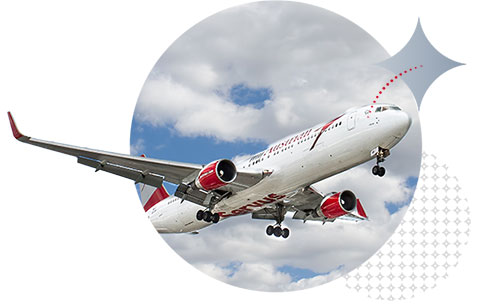How to move to Switzerland
Make the most of your money for the move



Guide on emigrating to Switzerland
5 minute readThere is more to Switzerland than skiing and cuckoo clocks; the high quality of living attracts expats from all over the world in search of a good life. There are visa and work permit requirements, which vary depending on whether the applicant is an EU/EFTA citizen. It's also worth keeping in mind that Brexit may provide some changes to consider if you plan to move to Switzerland from UK.
Do I need a visa for Switzerland?
EU citizens can enter Switzerland for up to 90 days without a visa, but any longer stays will require a visa and, if you’re planning to find employment, a work permit. As an EU citizen, you can register with your local Swiss canton office within 14 days of arrival and apply for a non-working residency permit.
If you’re retired and planning on moving to Switzerland, there is a relatively open policy and on Natixis’ Global Retirement Index (GRI), Switzerland consistently ranks as one of the best places to retire in the world. However, does have some requirements, including the financial resources to live in one of the most expensive places in the world.
Other requirements include proof of retirement and valid Swiss health and accident insurance cover but of equal importance to the right paperwork is a demonstration of a close connection to Switzerland. Owning a property in Switzerland may not be considered enough of a connection for automatic qualification.
As in many countries, priorities are given to skilled workers. Jobs in engineering and technology, pharmaceuticals, IT and finance are all in great demand. If you’re being relocated by your company, your HR department may provide assistance but if you move to Switzerland independently, make sure you get the right sort of visa to suit your purposes.
Which visa should I apply for?
Members of the EU have fewer requirements when moving to Switzerland, because the country is in the ‘Schengen Area’. However you will still need to have your paperwork in order. If you’re employed, you need your contract, a certificate from your employer and a current bank statement going back six months. Students need proof of enrolment and pensioners need proof of retirement.
For non-EU/EFTA citizens, there are strict annual quotas. Work permits, employment and self-employment visas and a range of temporary and permanent residency permits are available but you’ll need to make sure you can make a strong case and you might have to be patient if you miss out on a year when the quota has already been fulfilled.
Does Switzerland have a points-based immigration system like Australia?
Switzerland assesses different visas depending on the category. It’s worth researching what the authorities are looking for in each instance. It’s not quite as easy to work out your points total, but you can research the various categories of visa and areas of skills shortage and priority online on the Swiss immigration website.
How can I apply for my Switzerland visa?
Only short-stay visas of up to 90 days can be applied for online. You must apply for the appropriate permanent residence visa in person. With this in mind, it’s worth preparing extensively to make sure you have all the required paperwork before you make the appointment to avoid any delays.
How to open a bank account in Switzerland
Your first thought may be of movie villains and spies; Swiss bank accounts are renowned for their high levels of privacy. The banking sector also demands high security and you’ll need to apply in person once you’re in country.
If you don’t meet the stringent requirements, an alternative is to open an international payments account and convert the currency you require, but make sure you research and double check the rules and regulations as the financial sector is notoriously strict in many areas.
What is the currency used in Switzerland?
The currency used in Switzerland is the Swiss franc (CHF). It is considered a ‘safe haven’ currency that doesn’t fluctuate as often as other major currencies due to the high levels of financial protection within the country.
If you are emigrating to Switzerland from the UK, you can track the GBP to CHF rate with our currency chart. In addition, you can even set up a rate alert so we inform you by SMS or email if the rate reaches your desired level before you make an international payment.
Foreign currency exchange for moving to Switzerland
Those planning on moving to Switzerland from the UK on a permanent basis will most likely need to transfer money between a Swiss and UK bank accounts on more than a few occasions.
Whether buying a house or transferring your pension over to yourself, sending money to Switzerland from the UK is an essential part of emigrating. And, with some UK high-street banks charging up to £30 in transaction fees per transfer, making these international payments regularly could cost a considerable amount.
That’s why, as a team of foreign currency exchange specialists, we are dedicated to saving you time and money on every overseas payment you make. We offer low transfer fees and competitive exchange rates when you exchange GBP to CHF.
Open an account to start transferring today
Making the most of your international payments account
Tips on making the most for your money when you emigrate
Our News Hub has plenty of easy-to-read guidance on how to emigrate abroad




